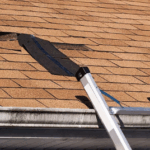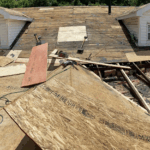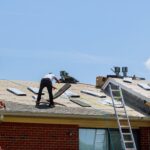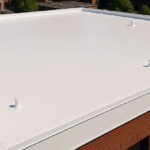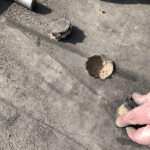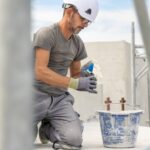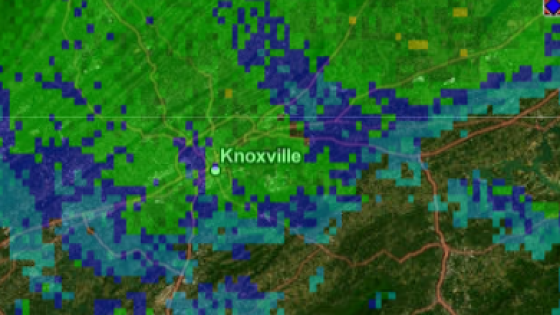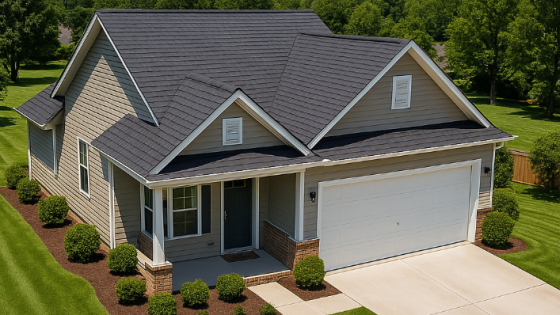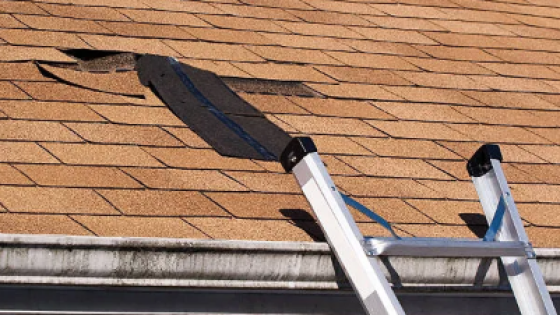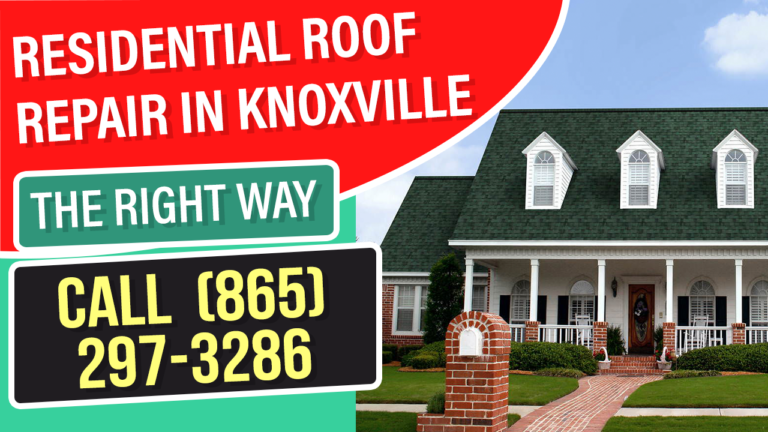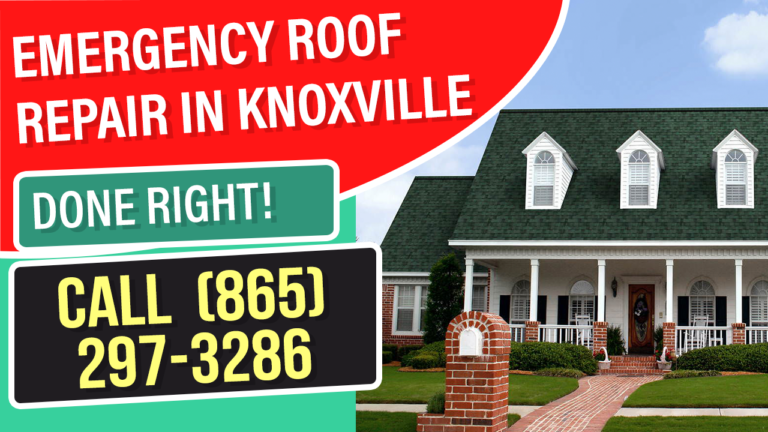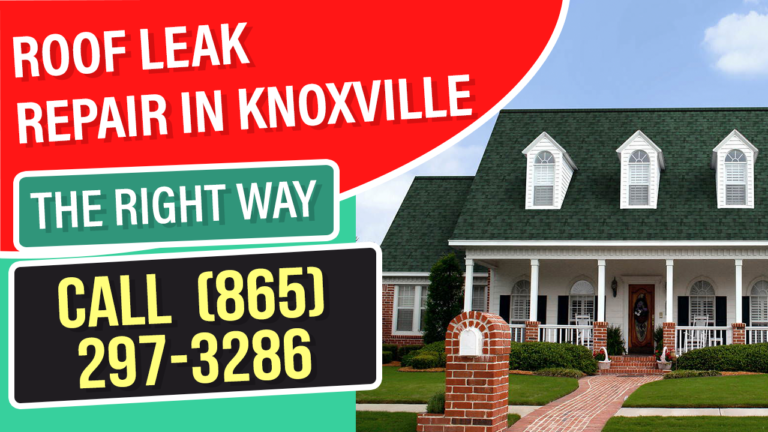Filing a homeowners insurance claim can be a stressful process, especially when you’re dealing with roofing damage. Whether it’s caused by a sudden storm, a fallen tree, or gradual wear and tear, navigating the insurance process is tricky. How you communicate with your insurance company, adjuster, and contractors can significantly impact the outcome of your claim. For homeowners in Knoxville, Tennessee, understanding what not to say during this process is essential to securing the best possible outcome.
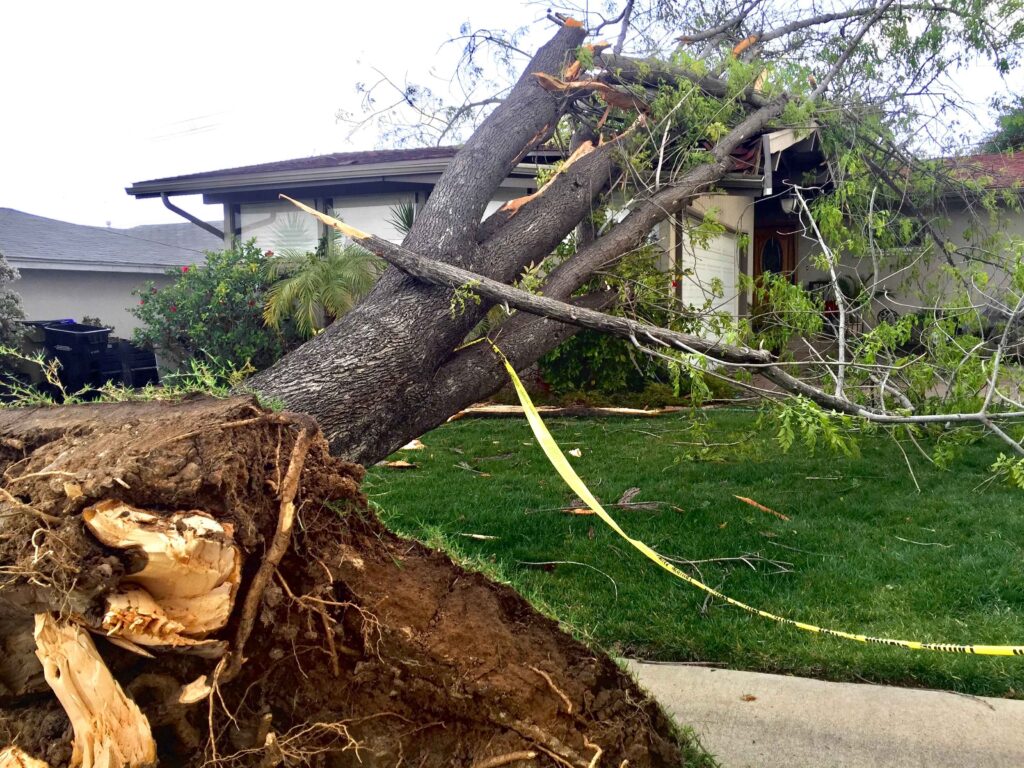
In this article, we’ll cover some key phrases to avoid when filing a claim for roofing damage, and we’ll explain why being mindful of your words can protect your finances and your roof. Read on to discover what not to say when filing a homeowners insurance claim.
1. "It’s My Fault"
One of the first things to avoid saying during an insurance claim is anything that admits fault or suggests negligence on your part. Homeowners insurance is designed to cover sudden and unexpected damage, but if the insurer determines that the damage could have been prevented by regular maintenance or care, they may deny your claim.
For example, if your roof has sustained damage due to a storm, don’t say something like, “I knew I should have replaced those shingles a while ago.” This implies that you were aware of pre-existing issues and didn’t act, which could weaken your claim. Even if there were maintenance issues, your focus should remain on the event that caused the damage, like the storm or wind.
Instead, describe the damage objectively. For example, “A storm blew through and caused these shingles to come loose, leading to a leak.” Avoid framing your statements in ways that could place blame on yourself.
2. "I Think…" or "I Guess…"
Speculating about the cause of damage or estimating repair costs without proper information can harm your claim. Words like “I think” or “I guess” may cause an adjuster to question the validity of your claim or ask you to provide unnecessary additional information. Remember, adjusters are trained to interpret your statements literally, and any ambiguity can work against you.
For example, saying, “I think the tree branch caused the damage,” or “I guess it’s going to cost about $10,000 to fix,” leaves room for doubt. Your job isn’t to provide a diagnosis or an estimate; that’s the responsibility of professionals like your Knoxville roofing contractor.
Instead, stick to the facts and what you know. “The tree fell onto the roof during the storm, and now I can see damage to the shingles and interior water spots.” If cost comes up, you can say, “I’m waiting for a professional estimate from my roofing contractor.”
3. "It’s No Big Deal"
Homeowners insurance adjusters may downplay the seriousness of your claim if you do. Saying, “It’s no big deal,” even in an effort to sound calm, can imply that the damage is minor, and the insurer may be less inclined to offer a full payout. Roofing damage, especially in Knoxville where storms can be frequent, can worsen quickly, and seemingly small issues like missing shingles or slight leaks can lead to bigger problems like mold, water damage, or structural concerns.
Even if the damage seems minimal, don’t downplay it when communicating with your insurance company. Let them know the impact of the damage on your home. For instance, “There’s a leak coming through the ceiling, and I’m concerned it will cause further damage if not addressed immediately.” You want the adjuster to understand the urgency and scope of the problem to ensure your claim is taken seriously.
4. "I Don’t Know"
Saying “I don’t know” too often or in critical moments can make you seem uninformed or uninterested in the claim process, which can raise red flags for the insurance company. If you’re asked a question about something you’re unsure of, avoid using “I don’t know” as a blanket response.
Instead, say something like, “I’m not sure, but I can find out,” or “Let me check with my contractor and get back to you.” Showing that you’re engaged in the process and seeking professional opinions from experts like your Knoxville roofing contractor can reassure the adjuster that you’re taking the claim seriously.
5. "My Roof Is Old"
While honesty is always important when filing a claim, some details can work against you, especially when it comes to the age of your roof. Most homeowners insurance policies account for depreciation, meaning they’ll adjust your payout based on the age and condition of your roof before the damage occurred. If you mention that your roof is old or near the end of its lifespan, the insurer may reduce your payout, assuming that your roof would have needed replacement soon anyway.
Rather than volunteering information about your roof’s age, focus on the damage that was caused by the recent event. For example, “The storm blew off several shingles, and now there’s water leaking into the attic.” Let your roofing contractor handle conversations around the age and overall condition of the roof, as they can provide a more balanced perspective.
6. "I’ll Accept the First Offer"
After the adjuster assesses the damage, they’ll often make an initial offer. Many homeowners are eager to settle their claims quickly, especially when roofing damage threatens the safety of their home. However, accepting the first offer without reviewing it or consulting with your Knoxville roofing contractor can lead to a lower payout than you deserve.
The first offer from an insurance company may not always reflect the actual cost of repairs, as they may initially offer less in hopes of settling the claim quickly. Don’t rush into a decision; take the time to review the offer carefully and consult with your contractor. Your roofing company can provide an accurate estimate of the repair costs, which may help you negotiate a better settlement with the insurer.
Instead of saying, “I’ll take whatever you offer,” respond with, “I’ll need to review the offer and compare it to the repair estimates I receive from my roofing contractor.”
7. "This Is the First Time"
While it may be tempting to emphasize that this is your first claim in an effort to build credibility, doing so can work against you. If you say, “This is the first time I’ve ever filed a claim,” the adjuster may interpret that as an opportunity to guide the claim process in their favor, assuming you’re unfamiliar with how things work.
You don’t need to volunteer your experience level with insurance claims. If asked about previous claims, answer honestly but without oversharing unnecessary details. Instead, let the adjuster know you’re working closely with professionals to ensure the process runs smoothly, such as by saying, “I’ve contacted a local Knoxville roofing contractor to get an expert opinion on the damage and repair costs.”
Bonus: What to Say When Filing a Homeowners Insurance Claim
Now that you know what not to say, it’s equally important to understand what to say when filing your homeowners insurance claim. The goal is to be clear, concise, and stick to the facts. Here are some key phrases and strategies to help guide your claim:
1. "The Damage Was Caused By [Event]"
Being specific about the cause of the damage helps the insurance adjuster understand that it resulted from a covered event. For instance, if a storm knocked off shingles or caused a leak, you should clearly state: “The damage occurred during the storm last weekend, which caused the shingles to blow off.” This ties the damage to a specific event that your insurance policy is more likely to cover.
2. "I Have Photos of the Damage"
While it may be tempting to emphasize that this is your first claim in an effort to build credibility, doing so can work against you. If you say, “This is the first time I’ve ever filed a claim,” the adjuster may interpret that as an opportunity to guide the claim process in their favor, assuming you’re unfamiliar with how things work.
You don’t need to volunteer your experience level with insurance claims. If asked about previous claims, answer honestly but without oversharing unnecessary details. Instead, let the adjuster know you’re working closely with professionals to ensure the process runs smoothly, such as by saying, “I’ve contacted a local Knoxville roofing contractor to get an expert opinion on the damage and repair costs.”
3. "I’ve Called a Roofer for an Estimate"
Letting your insurance company know that you’ve engaged a professional roofing contractor shows that you’re serious about getting an accurate repair assessment. You can say, “I’ve already contacted a Knoxville roofing contractor, and I’ll provide the estimate as soon as it’s available.” This demonstrates that you’re proactive and working with experts.
4. "I’ll Follow Up to Confirm the Next Steps"
Closing the conversation with a proactive statement shows that you’re serious about the process and want to ensure it moves forward without delays. Say something like, “I’ll follow up to confirm the next steps after I receive the contractor’s estimate.” This keeps the lines of communication open and sets the expectation that you’re tracking the claim’s progress.
5. "Provide Documentation of the Offer"
When an offer is made by the insurance company, always request documentation in writing. You can phrase this as, “Could you please provide the details of the offer in writing so I can review it carefully?” This gives you time to analyze the offer, consult with your roofing contractor, and ensure that the offer covers the necessary repairs.
Final Thoughts on What Not to Say When Filing
Filing a homeowners insurance claim for roofing damage can be a delicate process, but knowing both what not to say and what to say can make a significant difference. Be honest, provide evidence, and stick to the facts while avoiding statements that could imply fault or downplay the severity of the situation. Working with a trusted Knoxville roofing contractor will also ensure you have the professional support needed to secure a fair settlement. Ultimately, the right approach will help you protect your home and get the compensation you deserve.




